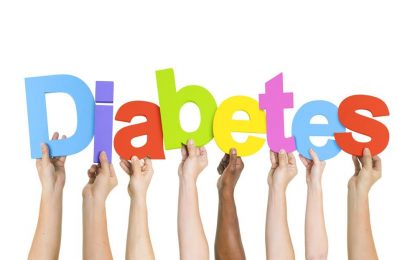Most people are aware of the classic signs and symptoms of diabetes — increased thirst, increased hunger and increased urination. But by some estimates, over 7 million people in the United States have Type 2 diabetes and don’t even know it. For many of them, the first symptoms of diabetes may be due diabetic complications, and they’re symptoms that most people don’t typically associate with diabetes.
1. Vision problems
In some cases, vision problems may be the first sign that someone has diabetes. High blood glucose levels from diabetes can damage the capillaries (tiny blood vessels) of the eye, a condition known as diabetic retinopathy. Diabetic retinopathy is a leading cause of vision loss and blindness. Diabetes can cause the capillaries to leak, distorting vision and causing “floaters,” dark blobs that move around in a person’s field of vision. A related condition is macular edema, which is swelling (edema) of the macula, an area in the center of the retina. The macula is associated with the sharp, straight-ahead vision people need for reading, driving and recognizing faces, and macular edema can make vision blurry. The earlier diabetic retinopathy is diagnosed, the more vision can be saved, by controlling blood glucose and cholesterol levels and, in some cases, laser treatments and injections into the eyes.
2. Nerve pain
Burning, tingling or numbness in the feet, legs, hands and/or arms may also be a symptom of undiagnosed diabetes. Over time, high blood glucose and triglyceride levels from diabetes can damage the nerves and the small blood vessels that supply them, leading to peripheral neuropathy (nerve disease). Other symptoms of peripheral neuropathy include extreme pain in the feet, legs, hands and arms when touched lightly, weakness and loss of balance. If diagnosed early, diabetic neuropathy can be halted or slowed down through blood glucose management, and there are several types of medications to treat the pain.
3. Fatigue
People with diabetes, especially undiagnosed diabetes, may become tired or fatigued for a couple of reasons. First of all, uncontrolled blood glucose levels can directly lead to fatigue. Second, high blood glucose levels can damage the blood vessels of the kidneys so that they don’t work as well. When the kidneys don’t filter the blood as well as they should, waste products can build up in the bloodstream. Typically, kidney disease causes no symptoms, but fatigue can be a symptom of kidney disease. The earlier diabetic kidney disease is diagnosed, the better it can be treated by controlling blood glucose levels and blood pressure. Specific blood pressure medications called ACE inhibitors and ARBs have been shown to be especially effective at slowing down the progression of diabetic kidney disease.





